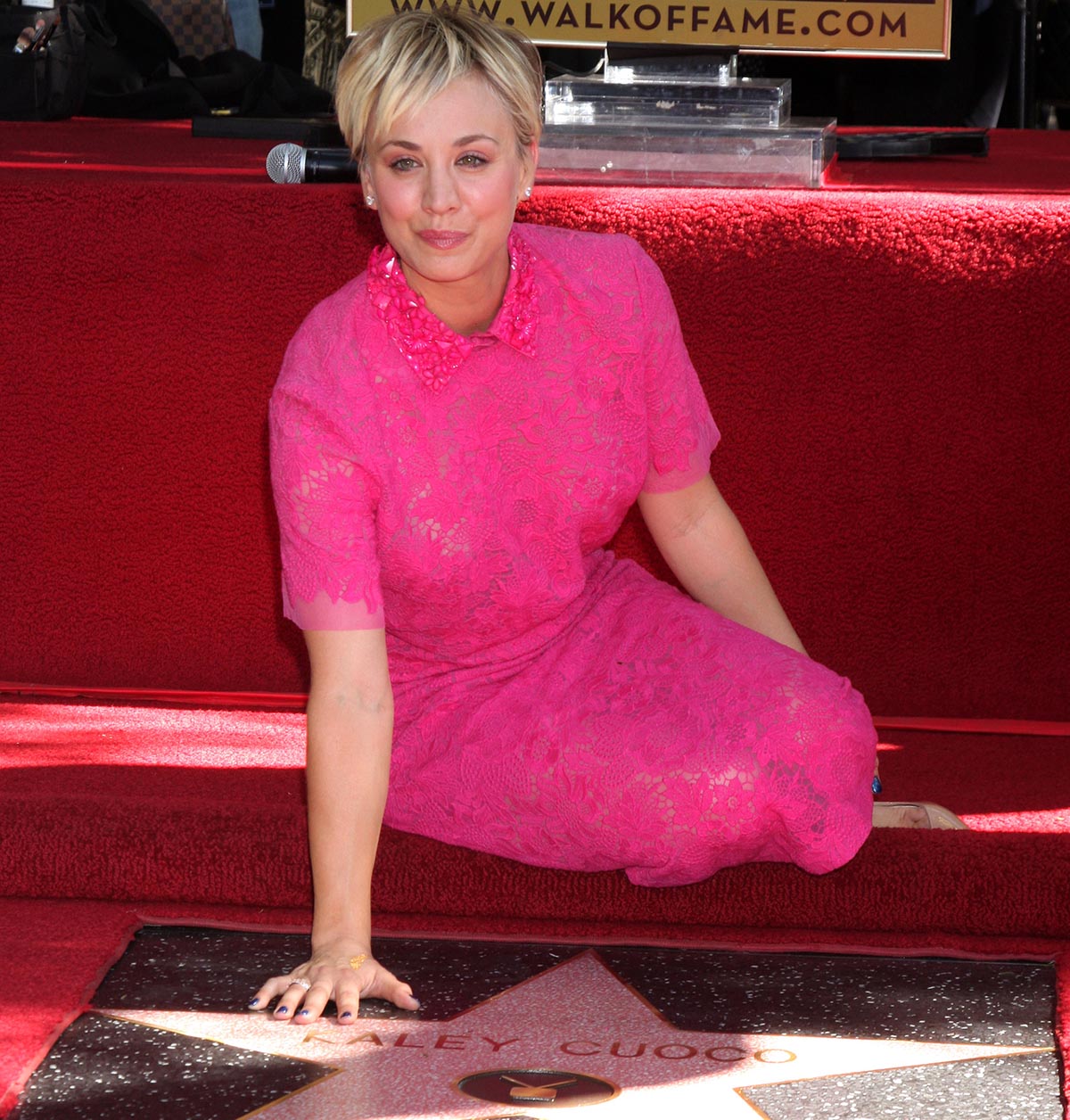Are Celebrities Helping Or Hurting Feminism?

By:
Feminism: It’s hard to imagine that any word generated more debate or was misconstrued more often in the past year. The term became appropriated by popular culture to such an extent that it seemed as though feminism had been reinvented, or at least, reintroduced to the general public.
The image of Beyoncé during the MTV Video Music Awards in front of the word “Feminist” in blazing neon lights may be the year’s most famous statement on feminism. Beyoncé’s performance featured a definition of feminism from Nigerian author Chimamanda Ngozi Adichie: “the person who believes in the social, political and economic equality of the sexes.”
Emma Watson cited a parallel definition in her “HeforShe” UN speech. Watson also addressed the word’s many negative connotations.
“I decided I was a feminist and this seemed uncomplicated to me,” said Watson. “But my recent research has shown me that feminism has become an unpopular word. Apparently I am among the ranks of women whose expressions are seen as too strong, too aggressive, isolating, anti-men and, unattractive.”
Watson extended a formal invitation to men to fight alongside women for equality of the sexes. Men too, are trapped by gender stereotypes, Watson said.
“Both men and women should feel free to be sensitive,” Watson said. “Both men and women should feel free to be strong…It is time that we all perceive gender on a spectrum not as two opposing sets of ideals.“
Banning the word "feminist"?
In 2014, “Do you consider yourself a feminist?” became the question du jour for journalists to ask celebrities. This trend became so obnoxious to Time magazine that “feminist” was included as one of Time’s words that should be banned in 2015.
After public outcry, editor Nancy Gibbs removed “feminist” from the list and apologized.
“TIME apologizes for the execution of this poll; the word ‘feminist’ should not have been included in a list of words to ban," Gibbs said. "While we meant to invite debate about some ways the word was used this year, that nuance was lost, and we regret that its inclusion has become a distraction from the important debate over equality and justice.”
To ban the word is to suggest that the movement itself is obnoxious, which Time clearly recognized after the fact as highly inappropriate and inadvisable. But continued discussion of the word “feminism” and its usage is warranted because people continue to misunderstand it.
The danger of celebrities not understanding what feminism means

Celebrities continue to be asked whether they see themselves as feminists, and they continue to answer, occasionally revealing that their own definitions of feminism are less than accurate. The Big Bang Theory’s Kaley Cuoco-Sweeting told Redbook: “Is it bad if I say no? It’s not really something I think about. Things are different now, and I know a lot of the work that paved the way for women happened before I was around…I was never that feminist girl demanding equality, but maybe that’s because I’ve never really faced inequality.”
Cuoco-Sweeting also said she likes to cook for her husband and “feel like a housewife,” which she conflates with not identifying as a feminist. Her assumption that because she never faced inequality, it doesn’t exist for other women in the United States and around the world, or, that if such inequality does exist, that it doesn’t affect her, is a dangerous one. Celebrities have the ability to make headlines when they embrace female empowerment and equality, but they can also serve as mouthpieces for misconceptions about what feminism is.
Trailblazers such as Nobel Prize Winner Malala Yousafzai and actress and transgender advocate Laverne Cox should serve as reminders to all women that there is still work to be done. When a woman can’t accuse the men who sexually assaulted her for fear of retribution or fear of being called a liar, there is still work to be done. When a girl is shot by terrorists for defending her right to get an education, there is still work to be done.
“Because the reality is that if we do nothing it will take 75 years or for me to be nearly a hundred before women can expect to be paid the same as men for the same work,” Watson said in her UN speech. “15.5 million girls will be married in the next 16 years as children. And at current rates it won’t be until 2086 before all rural African girls will be able to receive a secondary education.“
Perhaps none of this matters to Cuoco-Sweeting. But feminism does not belong to celebrities, nor does it belong to those who win awards for their work towards gender equality. The Internet enables anyone with a computer and without the platform or influence of public figures to add their voices to the debate.
The Tumblr blog “Who Needs Feminism?” was created by sixteen female students of the Duke University class Women in the Public Sphere.
“We aim to challenge existing stereotypes surrounding feminists and assert the importance of feminism today,” states the “Who We Are” page of the blog. “We feel that until the denigration surrounding feminism and women's issues is alleviated, it will be hard to achieve total gender equality, both statistically and socially.”
The blog features user submissions of women holding up handwritten signs declaring why they need feminism.
“I need feminism because ‘be a good girl and make me a coffee’ shouldn’t replace ‘hello,’” reads one anonymous submission. “I need feminism because I was told that no man wants a woman who is smarter than them,” reads another.
The Tumblr blog “Women Against Feminism” counters the “Who Needs Feminism?” blog. In this blog, women hold up handwritten signs explaining why they do not need feminism.
“I don’t need feminism because I enjoy being feminine,” reads one anonymous post. “Sexism is gender neutral and men have doubts and fears, just like women do,” reads another.
The events of 2014 may have situated feminism more firmly in the public discourse, but as long as feminism continues to be misconstrued and misrepresented, there is still work to be done.
